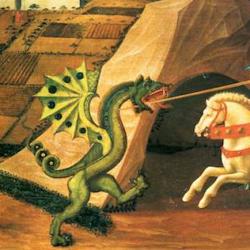Detached from the Eucharistic liturgy, preaching is at sea. Preachers announce the gospel and call our people to faith. We also want to give them something to do. There are dangers on both sides: We may so much emphasize the grace of God that we provide sophisticated excuses for passivity and inaction, if not sin; we may so emphasize the duties of the Christian life that our preaching becomes little more than moralizing.
We want to tell our people to do something; we want an altar call. But we do not want them to think that they are somehow achieving status with God by doing what we call them to.
The best altar call is . . . well, an altar call – a call to the altar-table of Jesus, where He offers Himself to us by His Spirit through bread and wine. Liturgical biblical theology has a ready-made application: “Do this!” This is clearly not a meritorious doing, because the command is an order to receive a gift.
If we think that is too little to call people to do, we do not grasp what it is we are doing. For in calling the congregation to do this, we are calling them to abide in Jesus, to eat and drink and breath Him, to share in His death as faithful witnesses, to renounce the table of demons, to share bread with the hungry and all their goods and gifts for the common good, to rejoice with thanksgiving in all things, to live together as Christ’s Spirit-filled body, to mount resistance to the violent, to be the political body of the age to come here in the present age.
All that, and far more, is entailed every time we call on the congregation to the broken bread and the cup of the Lord.
(From a lecture delivered at a conference sponsored by the Center for Pastor Theologians, November 3.)













